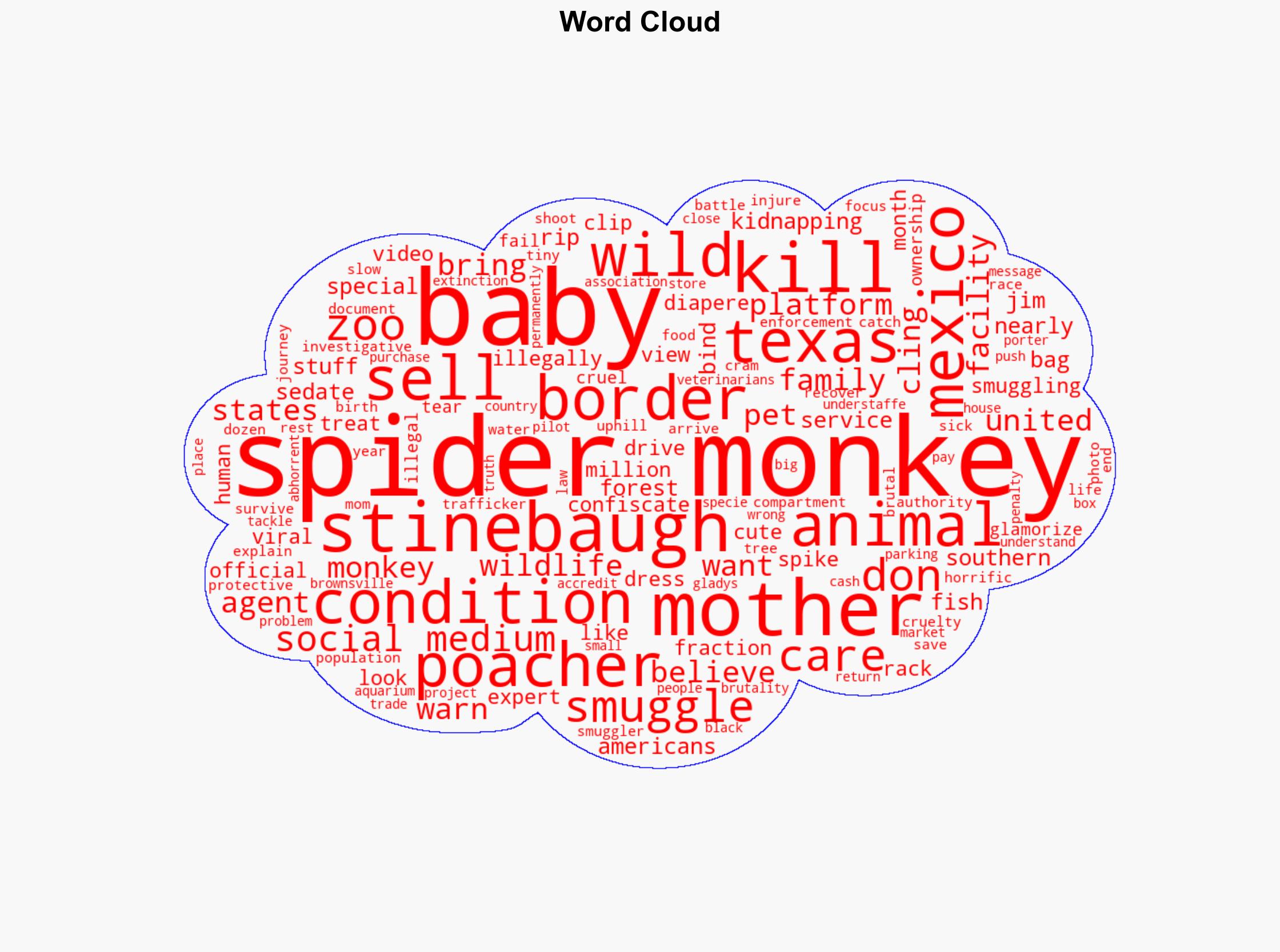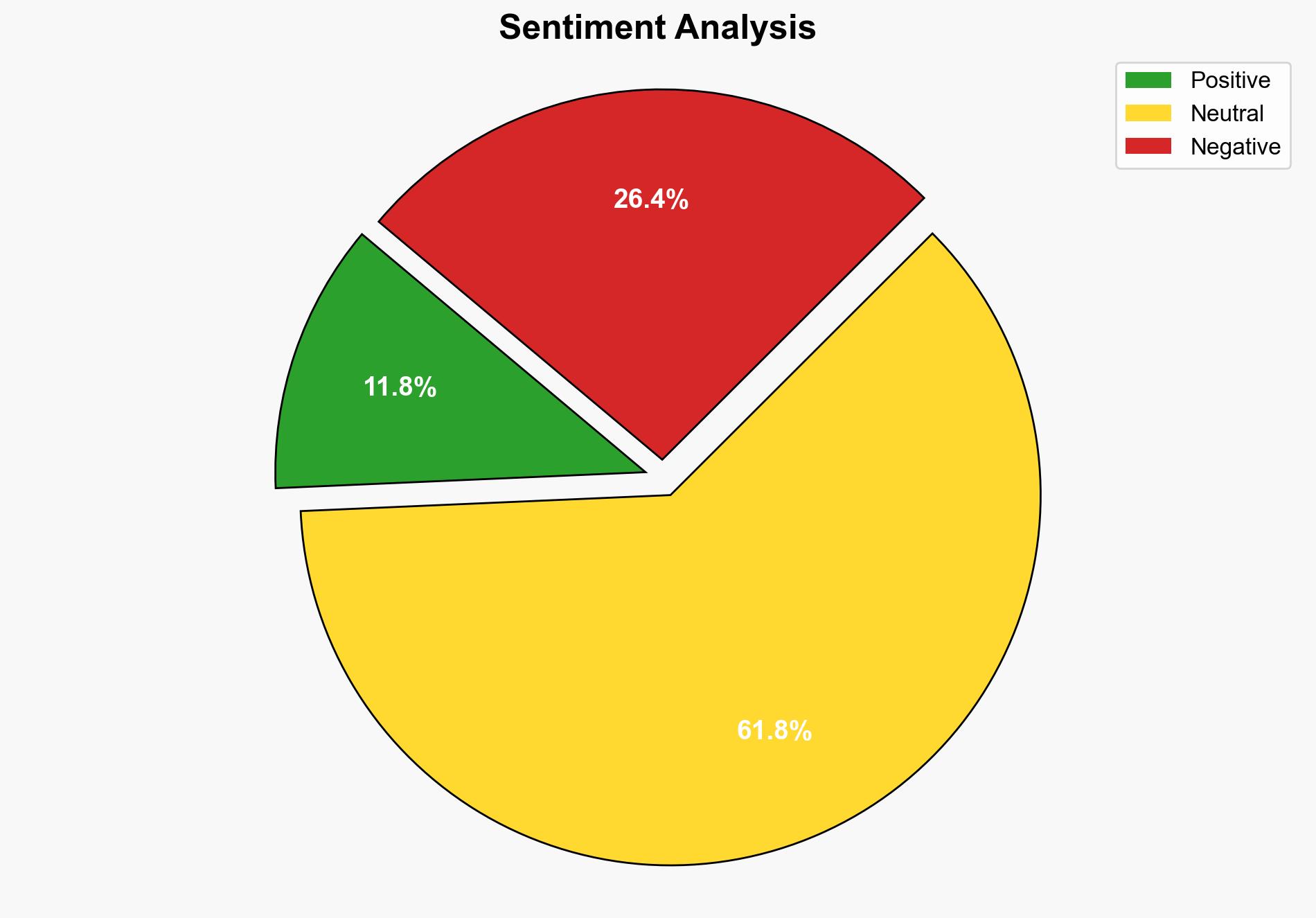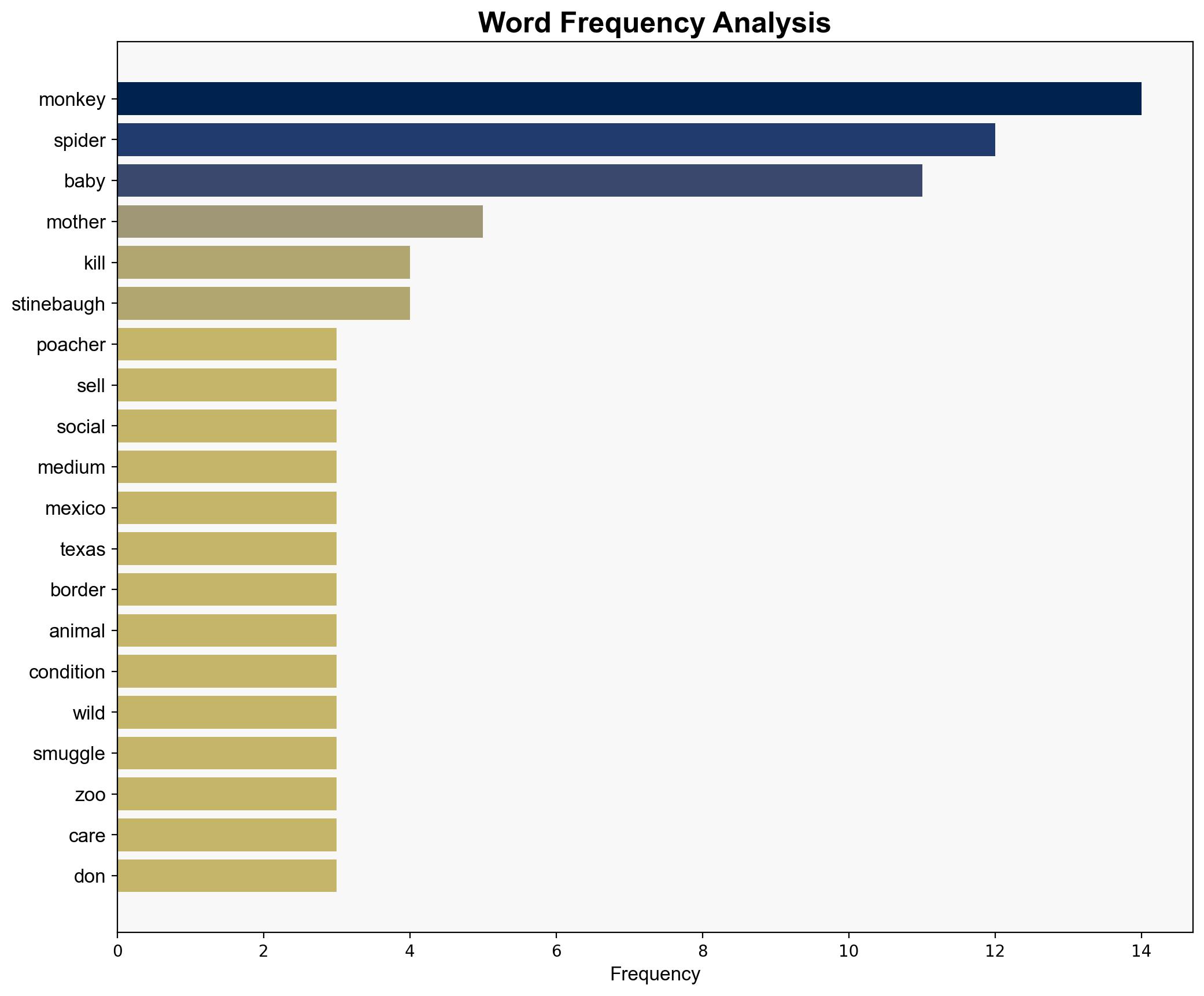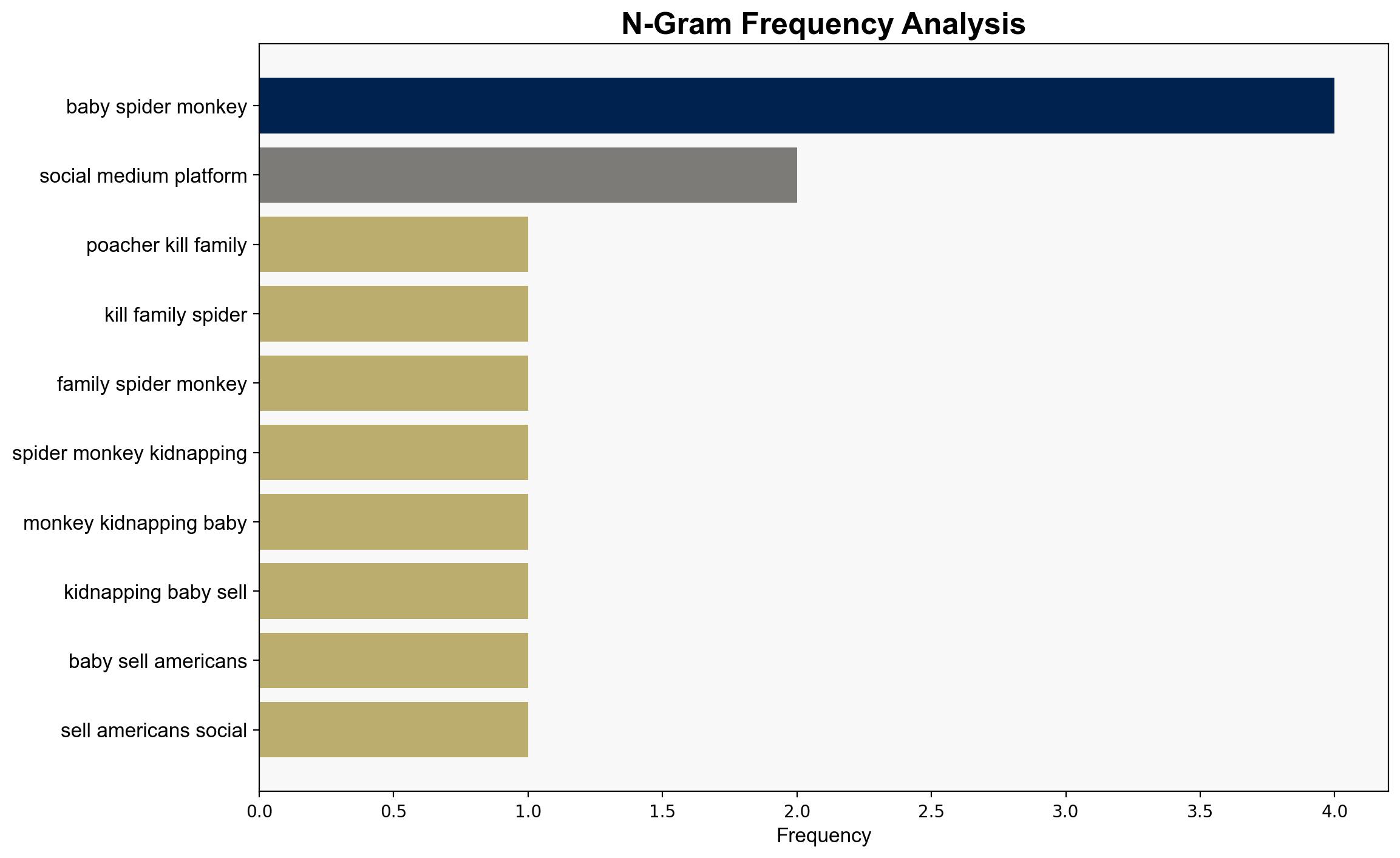Poachers are killing spider monkeys and selling their babies on social media – CBS News
Published on: 2025-10-28
Intelligence Report: Poachers are killing spider monkeys and selling their babies on social media – CBS News
1. BLUF (Bottom Line Up Front)
The illegal trade of spider monkeys, driven by social media platforms, poses a significant threat to their population, potentially leading to extinction. The most supported hypothesis is that the trade is primarily driven by demand in the United States, facilitated by social media. Immediate action is recommended to enhance law enforcement collaboration and increase public awareness. Confidence level: Moderate.
2. Competing Hypotheses
1. **Hypothesis A**: The primary driver of the spider monkey trade is the demand from U.S. consumers, facilitated by social media platforms that glamorize owning exotic pets.
2. **Hypothesis B**: The trade is primarily driven by organized crime networks exploiting weak enforcement and regulatory frameworks in Mexico and the U.S.
Using Bayesian Scenario Modeling, Hypothesis A is better supported due to the evidence of social media’s role in glamorizing the trade and the specific mention of U.S. consumers. However, Hypothesis B cannot be dismissed due to the complexity of smuggling operations.
3. Key Assumptions and Red Flags
– **Assumptions**: Hypothesis A assumes that social media has a significant influence on consumer behavior and that U.S. demand is the primary market. Hypothesis B assumes organized crime networks are the main facilitators.
– **Red Flags**: Limited data on the exact scale of organized crime involvement and the effectiveness of current enforcement measures.
– **Blind Spots**: Potential underestimation of local demand within Mexico and other countries.
4. Implications and Strategic Risks
The glamorization of exotic pets on social media could lead to increased demand, exacerbating the threat to spider monkey populations. Weak enforcement and small penalties may embolden traffickers. This situation could also impact biodiversity and ecological balance in affected regions, with potential geopolitical implications if cross-border tensions rise over wildlife trafficking.
5. Recommendations and Outlook
- Enhance cross-border collaboration between U.S. and Mexican law enforcement to disrupt trafficking networks.
- Implement stricter regulations and penalties for wildlife trafficking.
- Launch public awareness campaigns targeting social media platforms to reduce demand.
- Scenario Projections:
- Best: Successful international cooperation leads to a significant reduction in trafficking.
- Worst: Increased demand and ineffective enforcement result in spider monkeys nearing extinction.
- Most Likely: Moderate reduction in trafficking due to increased awareness and enforcement efforts.
6. Key Individuals and Entities
Jim Stinebaugh (mentioned as a special agent involved in the investigation).
7. Thematic Tags
wildlife trafficking, social media influence, cross-border crime, conservation efforts




